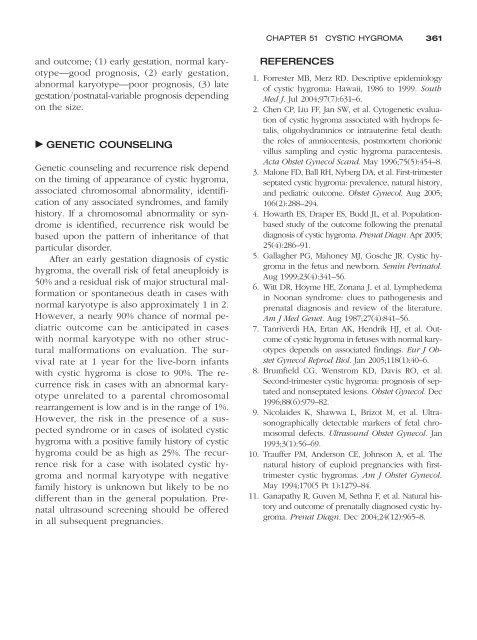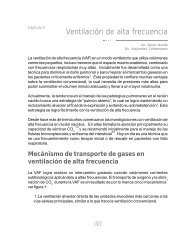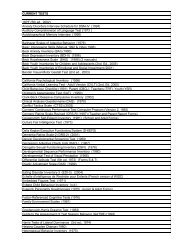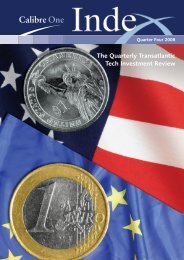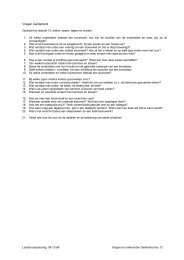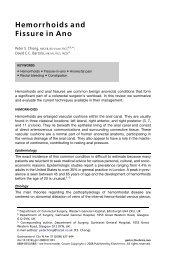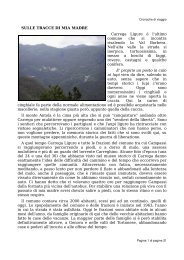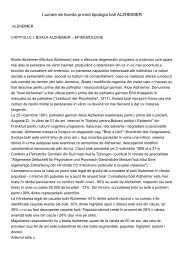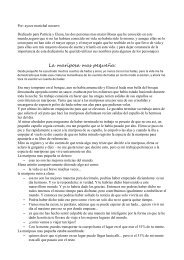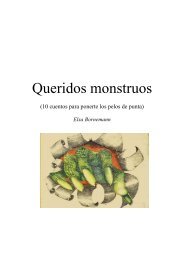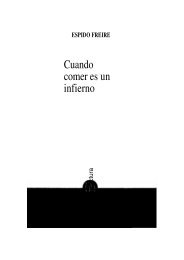Congenital malformations - Edocr
Congenital malformations - Edocr
Congenital malformations - Edocr
Create successful ePaper yourself
Turn your PDF publications into a flip-book with our unique Google optimized e-Paper software.
CHAPTER 51 CYSTIC HYGROMA 361<br />
and outcome; (1) early gestation, normal karyotype—good<br />
prognosis, (2) early gestation,<br />
abnormal karyotype—poor prognosis, (3) late<br />
gestation/postnatal-variable prognosis depending<br />
on the size.<br />
GENETIC COUNSELING<br />
Genetic counseling and recurrence risk depend<br />
on the timing of appearance of cystic hygroma,<br />
associated chromosomal abnormality, identification<br />
of any associated syndromes, and family<br />
history. If a chromosomal abnormality or syndrome<br />
is identified, recurrence risk would be<br />
based upon the pattern of inheritance of that<br />
particular disorder.<br />
After an early gestation diagnosis of cystic<br />
hygroma, the overall risk of fetal aneuploidy is<br />
50% and a residual risk of major structural malformation<br />
or spontaneous death in cases with<br />
normal karyotype is also approximately 1 in 2.<br />
However, a nearly 90% chance of normal pediatric<br />
outcome can be anticipated in cases<br />
with normal karyotype with no other structural<br />
<strong>malformations</strong> on evaluation. The survival<br />
rate at 1 year for the live-born infants<br />
with cystic hygroma is close to 90%. The recurrence<br />
risk in cases with an abnormal karyotype<br />
unrelated to a parental chromosomal<br />
rearrangement is low and is in the range of 1%.<br />
However, the risk in the presence of a suspected<br />
syndrome or in cases of isolated cystic<br />
hygroma with a positive family history of cystic<br />
hygroma could be as high as 25%. The recurrence<br />
risk for a case with isolated cystic hygroma<br />
and normal karyotype with negative<br />
family history is unknown but likely to be no<br />
different than in the general population. Prenatal<br />
ultrasound screening should be offered<br />
in all subsequent pregnancies.<br />
REFERENCES<br />
1. Forrester MB, Merz RD. Descriptive epidemiology<br />
of cystic hygroma: Hawaii, 1986 to 1999. South<br />
Med J. Jul 2004;97(7):631–6.<br />
2. Chen CP, Liu FF, Jan SW, et al. Cytogenetic evaluation<br />
of cystic hygroma associated with hydrops fetalis,<br />
oligohydramnios or intrauterine fetal death:<br />
the roles of amniocentesis, postmortem chorionic<br />
villus sampling and cystic hygroma paracentesis.<br />
Acta Obstet Gynecol Scand. May 1996;75(5):454–8.<br />
3. Malone FD, Ball RH, Nyberg DA, et al. First-trimester<br />
septated cystic hygroma: prevalence, natural history,<br />
and pediatric outcome. Obstet Gynecol. Aug 2005;<br />
106(2):288–294.<br />
4. Howarth ES, Draper ES, Budd JL, et al. Populationbased<br />
study of the outcome following the prenatal<br />
diagnosis of cystic hygroma. Prenat Diagn. Apr 2005;<br />
25(4):286–91.<br />
5. Gallagher PG, Mahoney MJ, Gosche JR. Cystic hygroma<br />
in the fetus and newborn. Semin Perinatol.<br />
Aug 1999;23(4):341–56.<br />
6. Witt DR, Hoyme HE, Zonana J, et al. Lymphedema<br />
in Noonan syndrome: clues to pathogenesis and<br />
prenatal diagnosis and review of the literature.<br />
Am J Med Genet. Aug 1987;27(4):841–56.<br />
7. Tanriverdi HA, Ertan AK, Hendrik HJ, et al. Outcome<br />
of cystic hygroma in fetuses with normal karyotypes<br />
depends on associated findings. Eur J Obstet<br />
Gynecol Reprod Biol. Jan 2005;118(1):40–6.<br />
8. Brumfield CG, Wenstrom KD, Davis RO, et al.<br />
Second-trimester cystic hygroma: prognosis of septated<br />
and nonseptated lesions. Obstet Gynecol. Dec<br />
1996;88(6):979–82.<br />
9. Nicolaides K, Shawwa L, Brizot M, et al. Ultrasonographically<br />
detectable markers of fetal chromosomal<br />
defects. Ultrasound Obstet Gynecol. Jan<br />
1993;3(1):56–69.<br />
10. Trauffer PM, Anderson CE, Johnson A, et al. The<br />
natural history of euploid pregnancies with firsttrimester<br />
cystic hygromas. Am J Obstet Gynecol.<br />
May 1994;170(5 Pt 1):1279–84.<br />
11. Ganapathy R, Guven M, Sethna F, et al. Natural history<br />
and outcome of prenatally diagnosed cystic hygroma.<br />
Prenat Diagn. Dec 2004;24(12):965–8.


